From the Field From Knowledge to Flavor: the Road to Agroecology
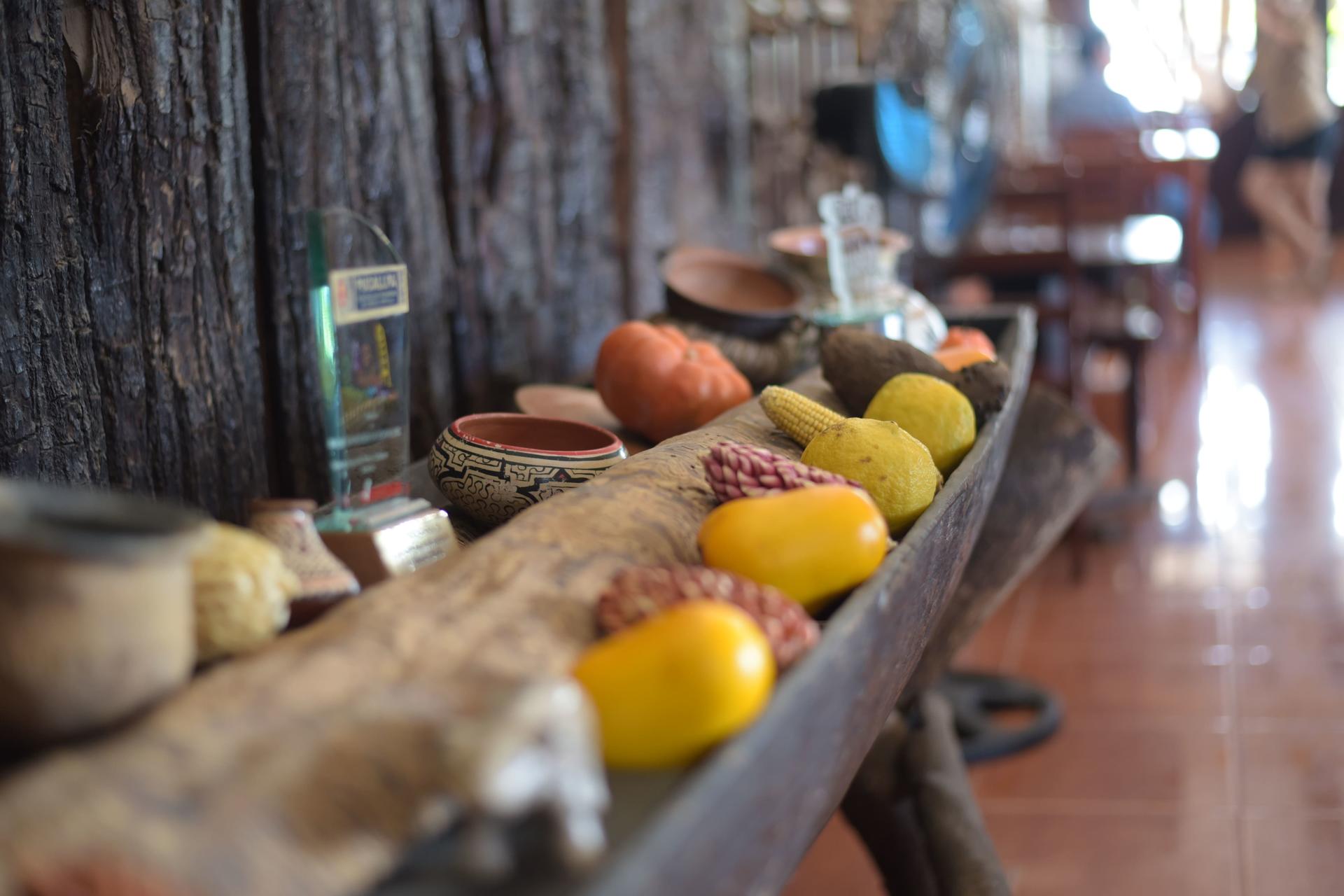
In the heart of the Peruvian Amazon, two women are revolutionizing agriculture and gastronomy with a sustainable and traditional approach. From Ucayali to Pucallpa, these women are showing how agroecology can generate income and protect the local environment.
In the 1960s, long before the concept of agroforestry - a technique that blends agriculture and forestry - became popular among farmers, a Japanese community that arrived in Peru was already implementing this practice in its pepper crops in the Amazon.
The Japanese farmers found the local Asaí palms and coffee plants to be their best allies to shelter from the relentless sun of the Peruvian jungle: they began to use them as 'natural umbrellas', which protected crops, allowing lower-altitude crops to thrive: An ingenious example of a partnership between nature and agriculture.
Julia Satomi - a Peruvian-Brazilian women with a dark complexion - inherited these practices that have been passed down from generation to generation. As well as using these natural umbrellas, Satomi honored the legacy of her women ancestors who led the work in the fields, and adopted the use of Amazonian fruits, recognized for their high nutritional value. This was how in 2021, guided by her inherited love for the Amazon and her vision of generating income in harmony with the environment, Julia Satomi founded Campodrim - a plot in Ucayali, Peru, dedicated to the planting and transformation of Amazonian fruits that focuses on agroecological business.
.
The agroecological business is a business model that generates income in balance with the ecosystem, seeking a synergy between economic activity and the conservation of the natural environment.
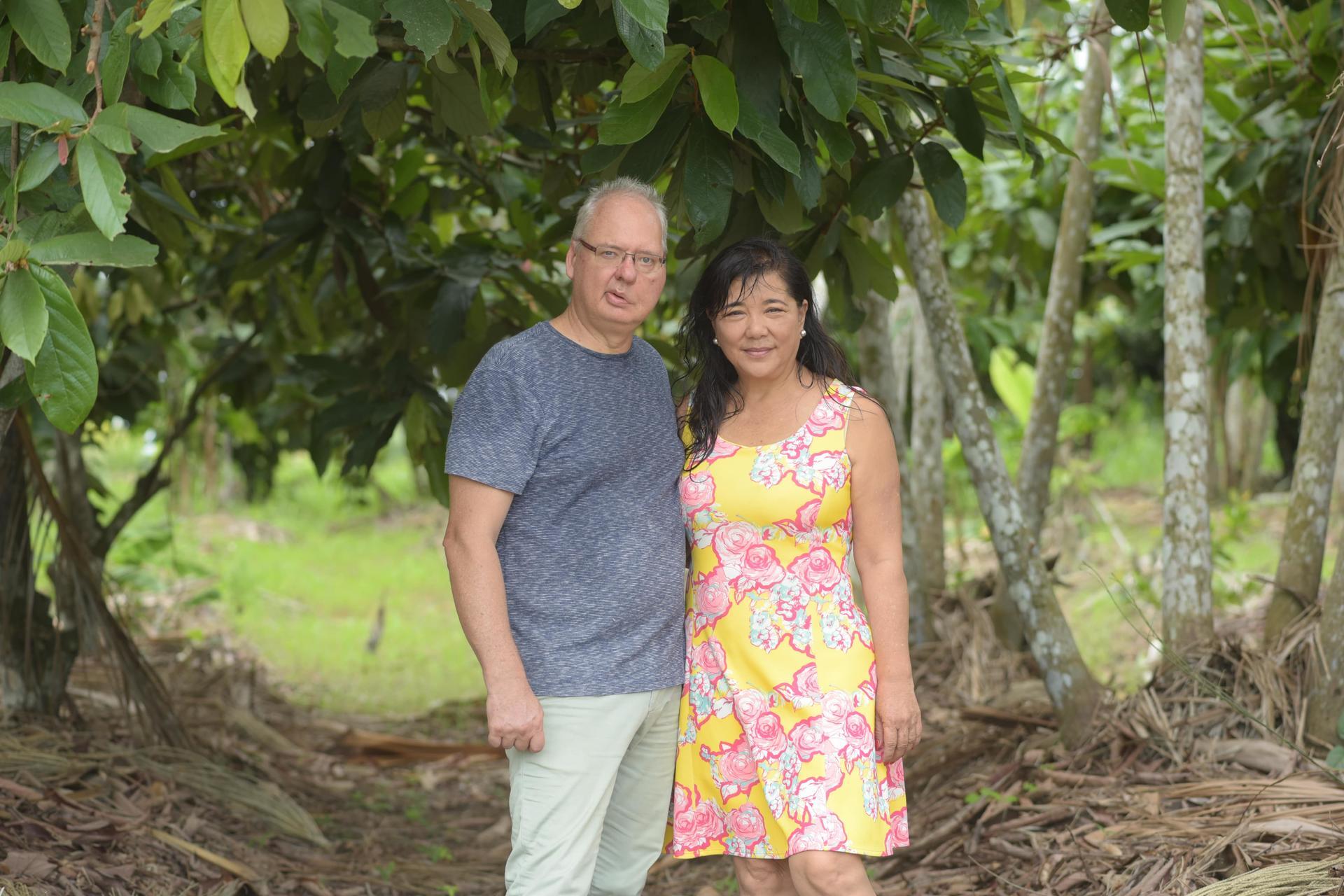
Julia Satomi and Dag Ehrstrom, founders of Campodrim / All photos by: Elizabeth Ramirez
Campodrim is an example of the first stop on this journey towards an agroecological transition: the field. This is where the search for harmony with the environment begins. Agroecology represents an approach to agriculture that promotes balance between nature and our interaction with it. Agroecological practices are the actions that contribute to this balance, favoring soil restoration, crop diversification and biodiversity conservation.
In this context, the traditions of Julia Satomi's family become relevant as a living example of agroecology. Knowing how to manage plants and make the most out of natural resources becomes a manifestation of this approach.
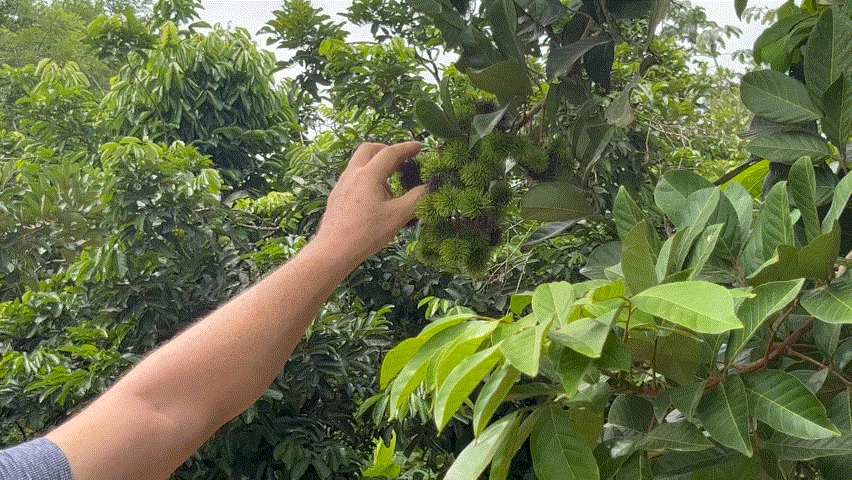
After planting and harvesting the fruits of the Peruvian Amazon, Campodrim moves on to the second stop: processing the raw material. In this phase, fruits such as acerola (recognized for its high vitamin C content) and pitahaya are converted into ready-to-market products such as jams, fruit powder and frozen pulp, without losing their nutritional quality.
Today, Campodrim has more than 30 clients in Peru including restaurants and hotels in Pucallpa, Tarapoto, and Lima; and distributes more than 3 tons of Amazonian fruits per month including acerola, cocona, aguaje, asaí, pitahaya, copuazú, and camu camu. In addition, they are developing an unfrozen pulp that will allow them to bring the flavors of the Amazon to all of Peru, and perhaps to the rest of the world.
The application of agroecological practices to food processing contributes to the balance between nature and human activity. By adopting methods such as organic farming, reducing the use of chemical inputs and developing a conscious food culture, Campodrim is protecting the environment while contributing to the economic development of local communities.
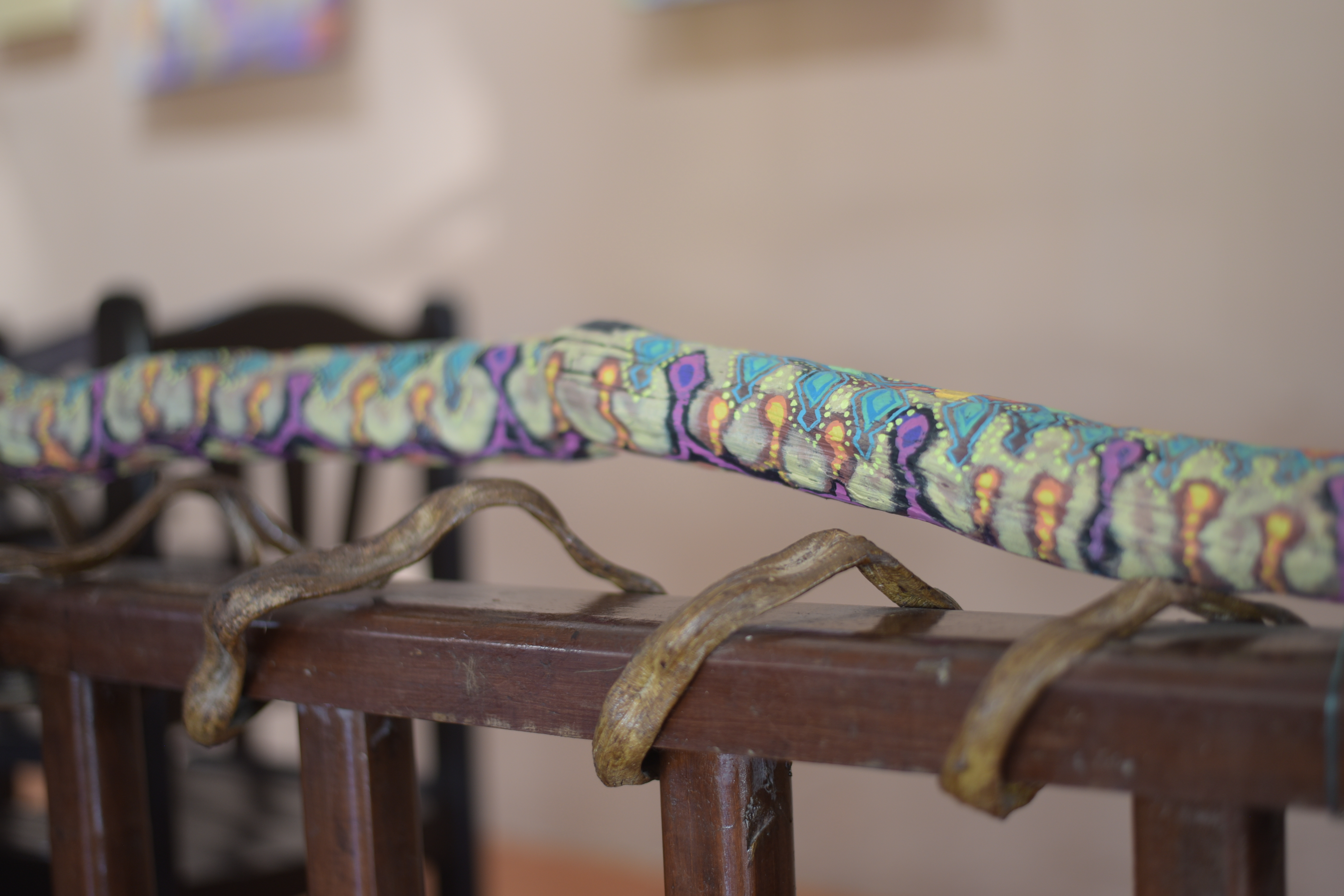
Third stop: Gastronomy
In the heart of Pucallpa, the capital of Ucayali, Blanca Perez keeps the true Pucallpina gastronomic jewel behind the doors of "El Tuyuyo". Whoever has walked through these doors or talked to Blanca will have heard her recite the poem that bears the same name as her restaurant, or will have seen it in the background, written on the wall like a mystical legend. "I am from a place where the pearls are pink and delight us with delicious juices, I am from a place where rivers have their maidens and paiche fish their throne, I am from a place that awaits you... I am from Ucayali."
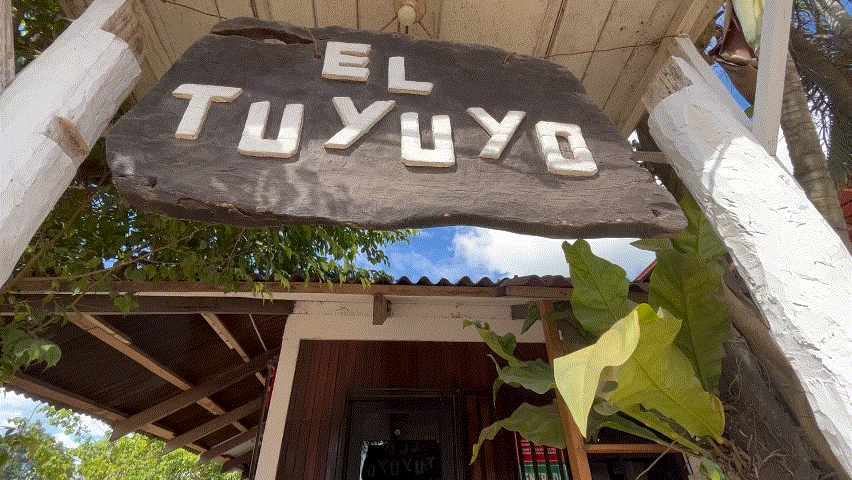
Blanca, the creator of El Tuyuyo, is a chef recognized both nationally and internationally for her traditional seasoning that reflects the diversity of her natural and cultural environment, and her restaurant is almost like a tourist attraction for foreigners who travel to the city of red earth in search of the best of Pucallpa's gastronomy.
Blanca Perez's trajectory to becoming one of the most renowned chefs in Pucallpa started with her grandmother. In their family's small vegetable garden, among the rows of cassava, coffee and cacao, Blanca listened to her grandmother interpreting the signs of the rain, the sun and the moon, indicating the best moment for harvest and the most fertile place to sow. This connection to the land served as a source of inspiration that gave life to El Tuyuyo. In this restaurant, Blanca perfects the art of combining local products with ancestral wisdom, creating dishes that evoke the landscapes and traditions of the Amazon.
In the words of the creator of El Tuyuyo, there is a great synergy between agroecology and gastronomy. For her, revitalizing these practices and knowledge is fundamental, as they are the basis of community identity.
"Knowing that gastronomy is linked to agroecology is to understand that we have an identity, that our soil and land are an important part of our food, because everything I consume is related to my land, to my 'food memory', and that gives me my identity," says Blanca.
In her restaurant she proudly displays the awards she has won for contributing to the local economic development of Pucallpa and its culinary tradition. "It is important to consume local food; it is a sense of responsibility because behind a dish there is a whole set of stories: the farmer, the man or woman who cultivates the ingredients. It is important to consume what our region produces so that development is fair and equitable," says Blanca. "I am what I eat... I am Amazonian". It is clear that Blanca's commitment to local cuisine goes beyond offering dishes that delight people's palate; it is an expression of identity and a homage to her land.
The Private Sector Incentives and Investments for Climate Change, Resilience and Environmental Sustainability (Psii) project, led by the Alliance of Bioversity International and CIAT as part of the TRANSITIONS program, promotes agroecology in small- and medium-sized enterprises in Pucallpa, so that companies such as Campodrim and El Tuyuyo continue to boost the economy from an agroecological approach.
In November 2023, the project signed a Memorandum of Understanding with Ucayali's Chamber of Commerce, reaffirming the commitment to continue promoting agroecological practices in the region's businesses. Peru's first Agroecological Investment Roundtable was also held, bringing together 21 farming and gastronomy companies to establish links with impact investors and other financial institutions.
From knowledge to flavor, the stories of Julia Satomi and Blanca Perez are symbolic of agroecology, linking tradition, culture, and respect for the environment, tracing a path towards a future where humans and nature coexist in harmony.

